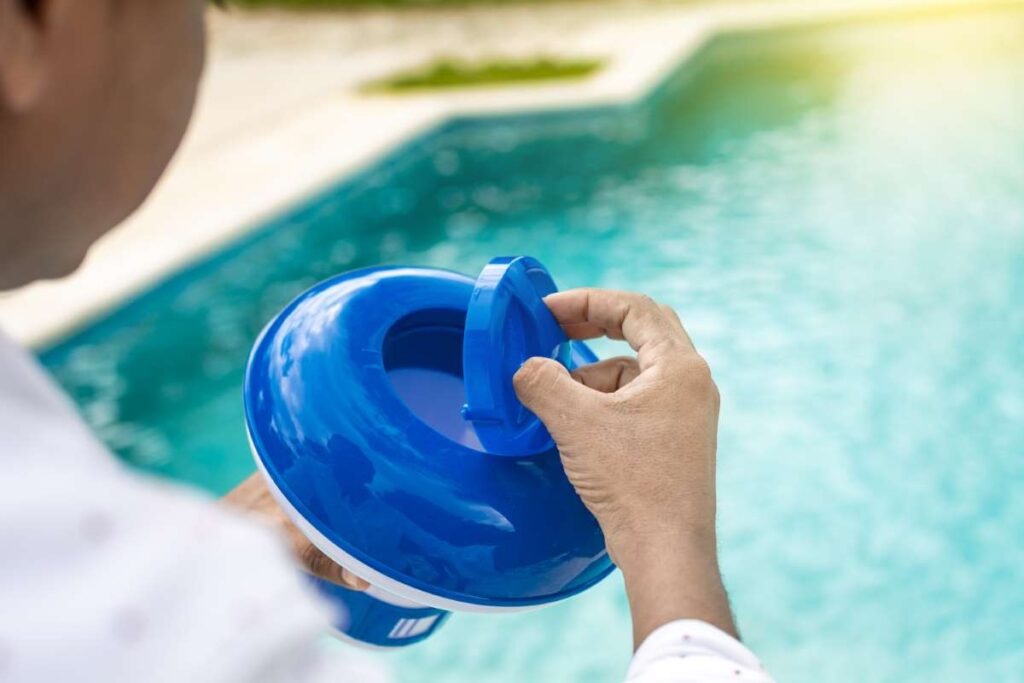Understanding Licensing Requirements for Pool Service Businesses
Discover essential licensing requirements for pool service businesses to ensure compliance and success in this lucrative industry.
Starting a pool service business can be an exciting venture, offering the potential for lucrative returns and the satisfaction of providing a valuable service. However, before diving into this industry, it is crucial to understand the various licensing requirements that govern the operation of pool service businesses. This blog post will provide a comprehensive overview of the licensing landscape, explaining why these requirements matter, how to navigate them, and the steps needed to establish a compliant and successful pool service business.
The Importance of Licensing in the Pool Service Industry
– Licensing is vital for establishing legitimacy and professionalism in any service industry, including pool maintenance. It not only assures customers of the credibility of your business but also helps to protect them from unqualified service providers.
– Different states have varying licensing requirements, which can include general business licenses, special permits for pool service, and even certifications for handling chemicals and equipment safely.
– Compliance with licensing regulations can also safeguard your business from potential legal issues and fines. In many cases, operating without the necessary licenses can lead to severe penalties, including business closure.
Understanding the importance of these licenses is the first step toward building a successful pool service operation. It sets the stage for professionalism and accountability in the services you provide.
Types of Licenses Required for Pool Service Businesses
Starting a pool service business may require several types of licenses and permits, depending on the location and specific services offered. Here are the most common licenses needed:
1. General Business License: Most local governments require a standard business license for any commercial operation. This license demonstrates that you are operating legally within your jurisdiction.
2. Specialized Pool Service License: Some states mandate a specific pool service license, particularly if you will be handling pool chemicals or performing installations. This license often requires proof of training or certification.
3. Chemical Handling Certification: If your pool service involves the use of chemicals, you may need to obtain a certification that demonstrates your knowledge of safe handling practices. This requirement ensures that you understand the risks associated with various chemicals and how to use them responsibly.
4. Insurance Requirements: While not a license per se, many states require pool service businesses to carry liability insurance. This protects both your business and your clients in case of accidents or damages.
5. City or County Permits: You may also need specific permits for doing business in certain areas, especially if your work involves construction or significant modifications to properties.
It is essential to research the exact requirements for your area. Every state has its own regulations, and your local government may have additional requirements that you must meet.
Navigating the Licensing Process
The licensing process can seem daunting, but breaking it down into manageable steps can ease the journey. Here’s how to navigate the process:
1. Research Local Requirements: Start by visiting your state’s business regulations website. This will help you identify the specific licenses and permits needed in your area. Consulting with local business development centers can also provide valuable insights.
2. Prepare Documentation: Gather all necessary documentation, which may include proof of identity, previous training or certifications, and insurance details. Having everything ready will streamline the application process.
3. Complete Application Forms: Fill out the required application forms thoroughly. Incomplete applications can lead to delays, so double-check your submissions for accuracy.
4. Submit and Pay Fees: Most licenses require a fee. Ensure that you submit your application along with the appropriate fee to avoid any processing delays.
5. Undergo Inspections or Interviews: Depending on the license, you may need to undergo an inspection of your business operations or an interview to confirm your qualifications.
6. Wait for Approval: After submission, it may take time for your applications to be processed. During this period, it’s essential to follow up and ensure that there are no issues with your application.
7. Maintain Compliance: Once you receive your licenses, stay informed about renewal dates and any changes in regulations that may affect your business. Failure to keep your licenses up to date can lead to fines or business suspension.
Navigating this process may seem complex, but breaking it down into these steps will make it easier to manage.
Best Practices for Maintaining Licensing Compliance
Once your pool service business is licensed, it’s essential to maintain compliance and ensure that you are operating within the law. Here are some best practices to help you remain compliant:
– Stay Informed: Regulations can change, so it’s crucial to keep informed about any updates to licensing requirements in your area. Regularly check with your local regulatory agency for news or changes.
– Keep Documentation Handy: Maintain organized records of all your licenses, permits, and necessary certifications. This not only helps in keeping track of renewal dates but also serves as proof of compliance during inspections.
– Invest in Ongoing Training: Continuing education is beneficial for staying updated on industry standards, safety practices, and legal requirements. Consider programs that offer specialized training in pool service management and chemical handling.
– Network with Industry Peers: Join industry associations or groups where you can share experiences and knowledge about licensing and compliance. Networking can provide valuable resources and support.
– Consult Professionals: If licensing requirements seem overwhelming, consider consulting with a legal professional who specializes in business regulations. Their expertise can help you navigate complex licensing landscapes effectively.
These practices not only help in maintaining compliance but also enhance your reputation as a reliable service provider in the pool maintenance industry.
Conclusion
Understanding the licensing requirements for pool service businesses is a fundamental step toward establishing a successful operation. From obtaining the necessary licenses to maintaining compliance, each element plays a critical role in ensuring your business’s credibility and longevity. By staying informed and following best practices, you can navigate the licensing landscape with confidence.
If you’re considering starting a pool service business or expanding an existing one, don’t overlook the importance of meeting legal requirements. For those interested, Superior Pool Routes offers valuable resources, including pool routes for sale that can help you get started on the right foot.
Remember, a well-licensed business not only attracts more clients but also sets the foundation for a reputable and trusted service in the community. Start your journey today, and embrace the opportunities that the pool service industry has to offer!



